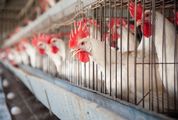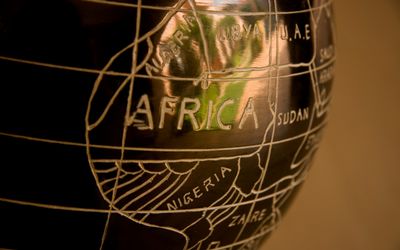DESPITE the decline in growth, Africa’s long-term outlook as a consumer market remains positive, says an inaugural report on retail and consumer businesses by professional services network PwC.
Gross domestic product (GDP) growth, population growth and urbanisation are among the factors representing a "compelling case" for retail and consumer companies to continue to expand and look for opportunities in Sub-Saharan Africa.
The report, released on Tuesday, analysed 10 African economies offering appealing opportunities for retail and consumer businesses looking to expand in Angola, Cameroon, Ethiopia, Ghana, Cote d’Ivoire, Kenya, Nigeria, South Africa, Tanzania and Zambia.
Encouraging economic growth rates are predicted for 2016 and beyond in a number of countries in Africa. A growing middle class is on the rise and with it, internet usage, private health care, formal retail and car and property ownership.
Africa is home to more than 1-billion people which is expected to increase to more than 2-billion by 2050. It has the youngest population, with 226-million people aged between 15 and 25 years in 2016, according to World Bank estimates. With the labour force growing faster than the population dependent on it, resources become available for investment in economic development and personal consumption.
The study quotes Standard Bank research, saying that 15-million households have a consumption base of about $5,500 a year in 2014. The expectation is that this base will grow to over 40-million people in sub-Saharan Africa by 2030. All of this buoys the consumer base. And improvements in democracy, in governance and reduction of red tape make it easier to work across borders.
Anton Hugo, PwC retail and consumer leader for Africa, said the continent had risen to prominence as an investment destination and the role of retail and consumer goods had become more significant.
"However, Africa’s fortunes are very much tied to those of the global economy," said Edafe Erhie, PwC’s partner in Nigeria.
"Pressure on emerging market currencies coupled with a decline in oil and other commodity prices has seen pressure on government revenues and the ability of governments to increase social expenditure and wages in the public sector. Africa retailers will need to focus their efforts on operational efficiency and management the effect on their operations of volatile currencies," said Mr Erhie.
Many African currencies have weakened against a strong US dollar, which has inflated the costs of imports and raw materials.
"It does present a challenge for companies operating in the region," said Mr Hugo.
Softer demand from Europe and China, lower commodity prices (most significantly the oil price, which is affecting crude producers such as Angola and Nigeria) and security threats in countries such as Nigeria and Kenya have affected GDP growth.
But many sub-Saharan Africa countries have been among the world’s fastest growing economies. Between 2000 and 2014, GDP in Angola, Ethiopia and Nigeria grew at average annual rates of 9.2%, 8.8% and 7.7%, respectively.
Mr Hugo said very strong growth rates are still predicted for these economies. Kenya’s growth rates will be close to 6% this year. Nigeria slowing down to 4% and looking towards 2017, Cameroon is at 5.5%, Cote D’Ivoire 7.5%, Ethiopia 7.6%, and Ghana 9.4%.
Mr Hugo said there’s a natural move for companies to drive to increase geographic diversification. Faced with a saturating domestic market, South African retailers have been among the most aggressive in expanding. Supermarket group Shoprite Holdings has been one of the pioneers, having first entered Zambia in 1995.
Another factor in favour of bigger groups is the shift towards modernisation such as the development of western-style shopping centres over the past decade.
Michael Mugasa, partner with PwC in Kenya, said investors increasingly want a permanent footprint in the countries in which they are invested. In the consumer goods space, the report said South African companies — such as Tiger Brands, Pioneer Foods, Distell and Clover — are playing a leading role in either setting up local plants, buying companies or exporting products to the broader region.
Apart from South Africa and Angola, informal retail will continue to dominate sales in sub-Saharan Africa for the foreseeable future and it is estimated that more than 90% of sales in the countries surveyed is through markets, kiosks, table-top sellers and street hawkers, providing opportunities for formal retailers.
But Mr Mugasa said informal trade was here to stay. "They’re agile, they’re flexible … some are turning into mini supermarkets. They cannot be ignored."
Michael Lalor, advisory consumer products director at EY Africa, said the African opportunity is real and there remains a window to act.
"However, that window is narrowing, and the cost of entering African markets is beginning to rise.
"Companies with an already established presence continue to expand and entrench their advantages. Doing business in Africa is challenging, but not overwhelmingly so. In our opinion, the risk for missing this window is likely to be far greater than any of the risks you will encounter in actually doing business in Africa," said Mr Lalor.




















Change: 0.26%
Change: 0.41%
Change: 0.74%
Change: 0.41%
Change: -0.46%
Data supplied by Profile Data
Change: -0.01%
Change: 0.90%
Change: 0.26%
Change: 0.00%
Change: 0.66%
Data supplied by Profile Data
Change: 0.82%
Change: 0.68%
Change: 0.64%
Change: 1.03%
Change: 0.82%
Data supplied by Profile Data
Change: 0.17%
Change: -0.31%
Change: 0.94%
Change: 0.17%
Change: -0.05%
Data supplied by Profile Data